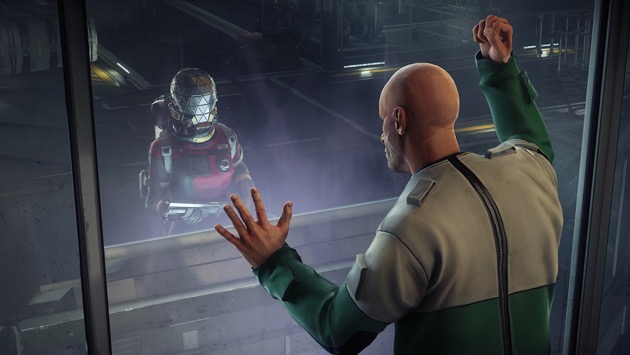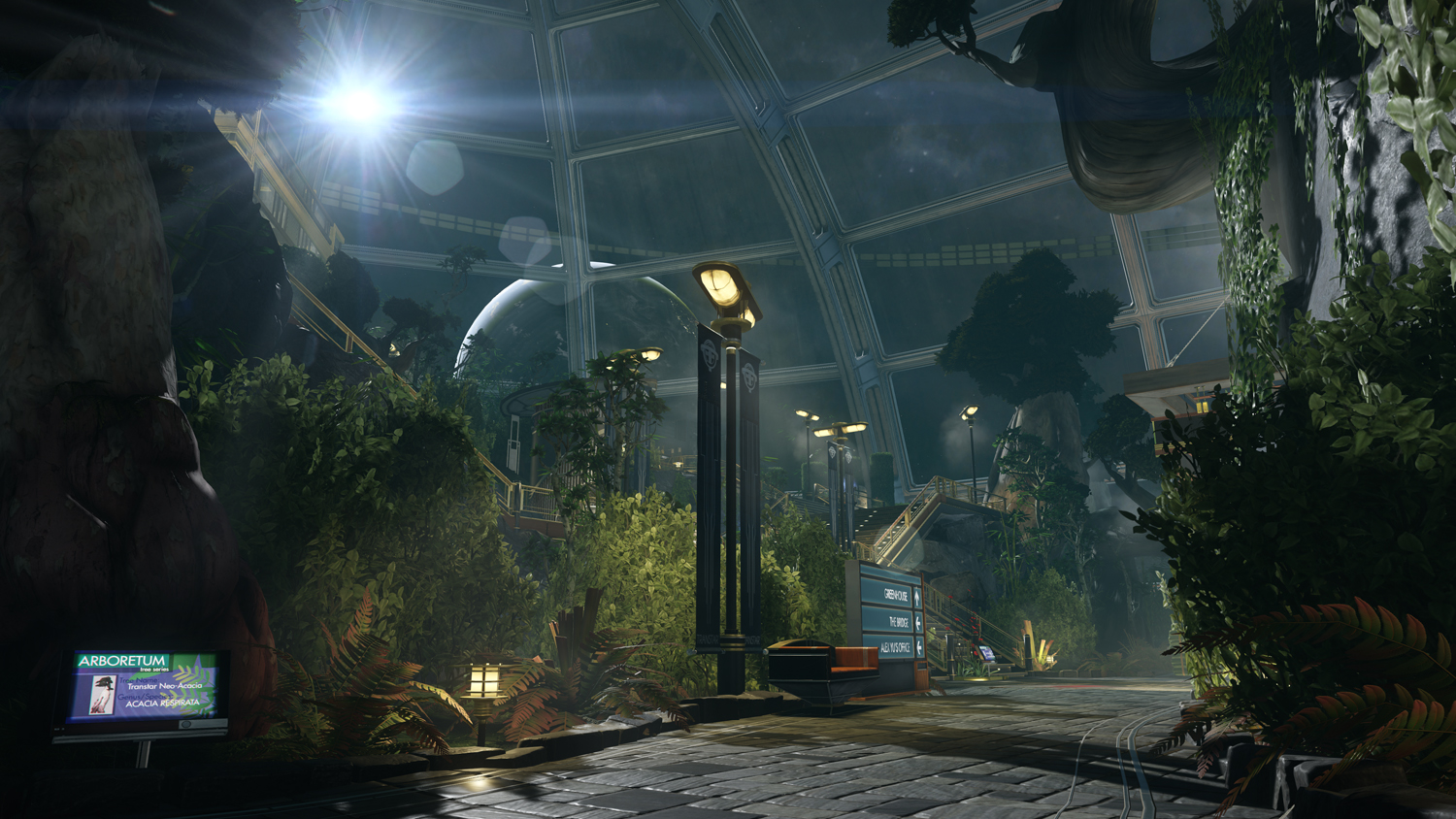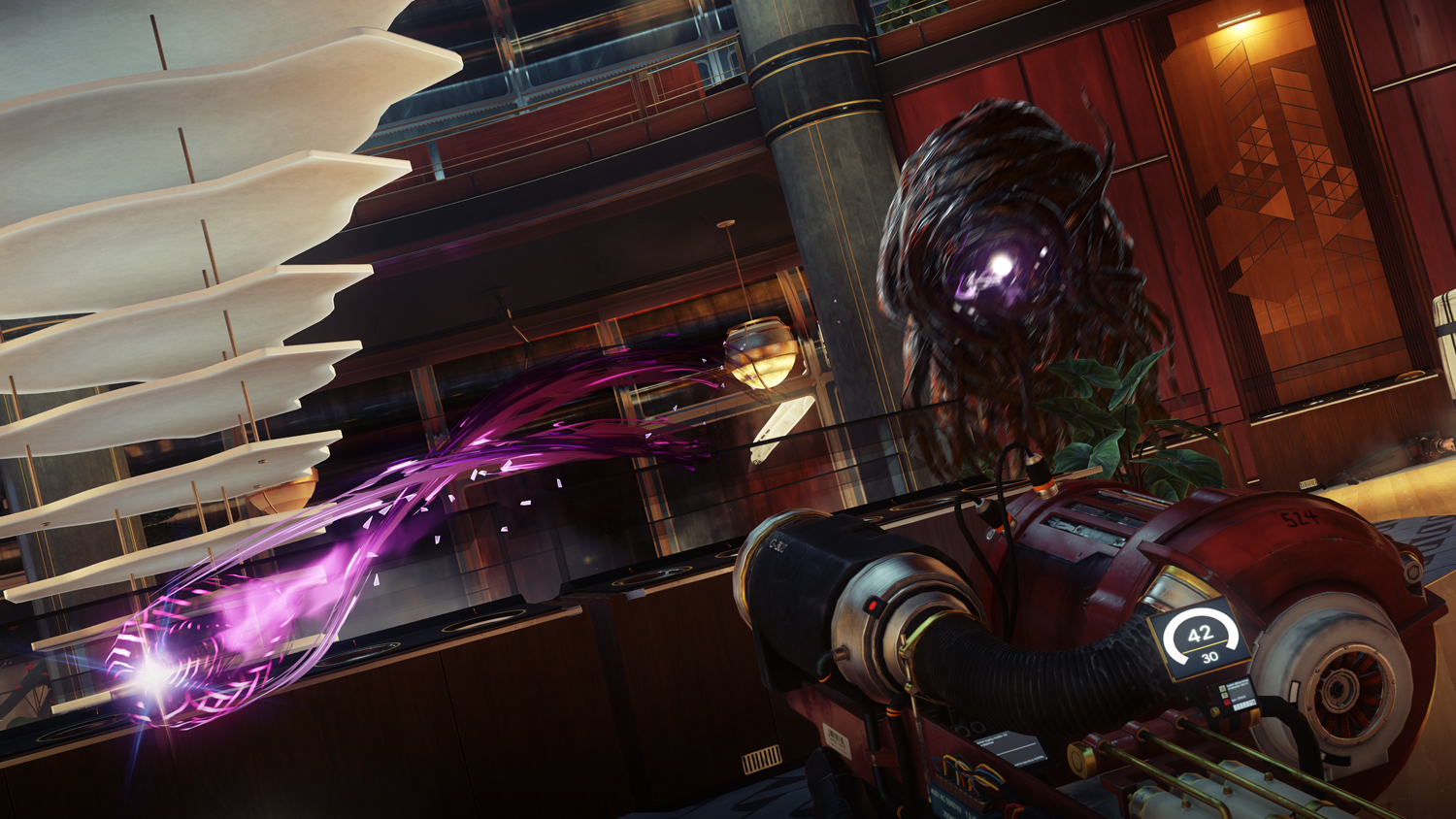Prey - Review

I loved the original Prey, as there was something about the science-fiction shooter that just clicked with me. It was weird, wacky, and broke new ground with its gameplay mechanics while at the same time being something very familiar. And while the reboot is something completely different, separated entirely from the original title, it does evoke many of those same feelings within me.
Arkane has tried to make their own version of Half-Life, and they have done a remarkably good job at building a living, breathing world, populated by actual people, interconnected and woven together as you would expect out of a functioning society. Comparisons are easy to make to Bioshock (or System Shock), Dead Space, Dishonored, and more, but it manages to take all of these influences and create a game that is wholly unique.
You are Morgan Yu, and you are a scientist. During the course of an experiment on board of Talos One, a giant space station orbiting Earth, your world is shattered as you must try to figure out what is going on. It takes a set of well-known tropes, with an abandoned station, a mysterious alien entity, a loss of memory, and familial conflict, but morphs them. They don’t rely on the cliché, rather, they use it as a starting point to craft their story.

What is most compelling about this is the characters within it. As you explore, you find bodies of crew member. Some died running away. Some died hiding. Some, fighting. This is normal, but each one tells their own story. Each one has a name, a life that they were living outside of the course of this game that was interrupted by their death. You can start to glean personality traits about them as you explore. How did they die? Where did they die? You’ll find emails and audio logs between crew members as they build up the web of life around you.
One of my favorite side plots is that a group of characters were playing DnD, and you can hunt down character sheets, maps, and emails sent back and forth that detail their sessions. You find an email about a crew member offering to pirate video games onto people’s handhelds, and more from IT angry at the guy for breaking the devices in the process.
These stories aren’t shoved at you. Most, if not all of them are not tied to quests in any way at all. You never need to experience any of this, but you can. You can track the web through different people, in different parts of the station, on different computers. It doesn’t feel staged as cool moments to stumble upon. It feels like there was a living, breathing community here that was torn apart in the middle of their everyday life.
You feel like a detective walking into a crime scene on a Monday afternoon, finding plates of food laying out, and the TV still on, surrounded by bodies. You want to know more about them, find out what they were doing. Find out why a man from engineering was in a shuttle outside of the station, and his quarters held someone from the med bay.

This world is not a safe one. Even as you want to explore, you have to be wary of your enemies, powerful, plentiful, and seemingly hidden behind every corner. There are humanoid phantoms, menacing telepaths, and the shape-shifting mimics, the most compelling of all. Mimics are the first enemy that you see, and true to their name, they have to ability to mimic basically any object in the environment.
Realizing this as you wander through offices, thinking you saw something out of the corner of your eye, and turning to see nothing besides a coffee cup slowly builds a sense of paranoia in you. The first time you catch one of the mimics transforming is the moment that your trust in the world is shattered. You start to obsessively check everything around you, bashing it with your wrench in the off chance that it is an enemy, only to miss the one hidden behind you.
It makes the first half a dozen hours of this game delightfully tense, but after this point, the combat can get a bit tedious. As soon as you have guns, and a reliable source of ammo, your combat style shifts to heavily favor them. Enemy encounters become less of a battle of prediction, and more of a battle of how fast you can pump off several rounds from your shotgun. But even then, they do manage to have tough and surprising fights that keep you on edge, carefully balancing your last few rounds of ammo and bits of health as you try to survive. Resources are limited on the station, and you need to scavenge and ration to survive.
You are augmented by neuromods, which allow you to upgrade yourself almost as if they were skill points. At first, you can upgrade basic things, like your health, hacking ability, or inventory limit, but as the game progresses, you gain access to powerful alien abilities that you can choose to take. But if you do, you slowly lose your humanity, running the risk of the station’s automated defenses seeing you as an enemy, and falling into a hole that you can’t get out of.
These neuromods are even well incorporated into the story, driving many of the questions that you have as you play. A neuromod lets you learn any skill instantly, but if you ever “uninstall” one, your memory is reset to the point at which you first “installed” it. Due to the constant use of these in experiments, you can’t remember anything, and you have no idea what role you played in many of the events that are happening on the station.
Prey is an amazing game. It creates a world full of people that you want to find and get to know, full of enemies that actually remain tense, even tens of hours in, full of story packed into every nook and cranny that you can stick your nose into. Every problem feels like it has multiple solutions, whether that be hunting down keycards or breaking windows and firing toy crossbows at computer screens. It encourages exploration and familiarization in a way that few games do. It fulfills the promise that many games make and few live up to, creating a world you want to be in and letting you play your own way.
4.5/5
Review written for the Xbox One version of the game. Your experience may vary on different platforms.
Our review code can be found here for information on how we write and score our reviews. If you have any questions, comments, suggestions, or concerns, please contact us at contact@deathofthecritic.com
_____________________________________________

Tom has been writing about media since he was a senior in high school. He likes long walks on the beach, dark liquor, and when characters reload guns in action movies.
You Might Also Like:
Ghost Recon: Wildlands - ReviewSniper: Ghost Warrior 3 - Review
Mass Effect: Andromeda - Review
_____________________________________________